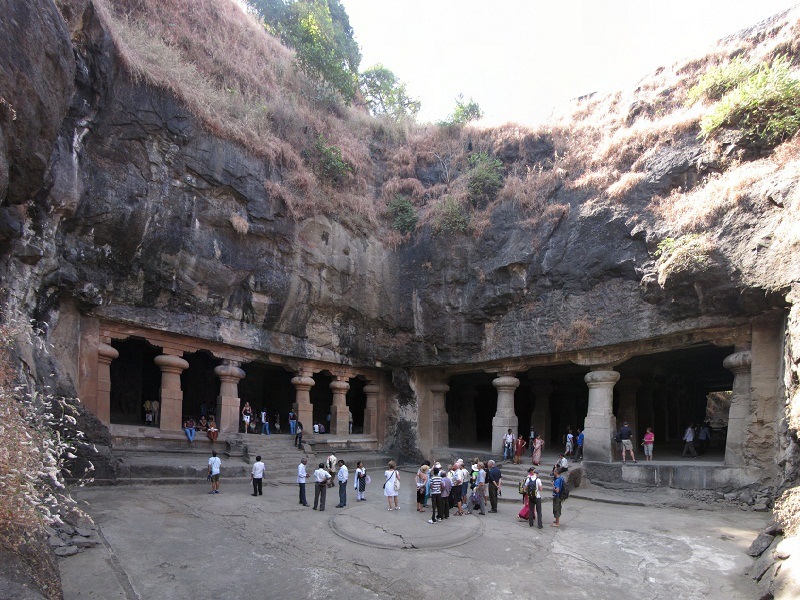Elephanta Caves: Unveiling the Path to World Heritage Recognition
Nestled on a picturesque island near Mumbai, the Elephanta Caves stand as a living testament to India’s rich cultural legacy. Designated as a UNESCO World Heritage Site, these ancient rock-cut caves have not only endured the ravages of time but have also captivated the world with their historical significance and architectural brilliance.

A Glimpse into History:
The Elephanta Caves, situated on Gharapuri Island, have a history that dates back over a millennium. Carved during the 5th to 8th centuries, these cave temples represent an important chapter in India’s artistic and religious evolution. Dedicated primarily to Lord Shiva, the caves showcase remarkable sculptures, intricately carved panels, and awe-inspiring architecture that provide insights into ancient Indian civilization.
Date of Designation:
The recognition of the Elephanta Caves’ cultural and historical significance culminated on July 15, 1987, when they were officially inscribed on the UNESCO World Heritage List. This milestone not only celebrated India’s heritage but also marked the global acknowledgment of the caves’ unique artistic and architectural value.
Reasons Behind its Designation:
Several compelling reasons contributed to the inclusion of the Elephanta Caves in the prestigious UNESCO World Heritage List:
- Architectural Grandeur: The Elephanta Caves are a remarkable example of rock-cut architecture, showcasing the ingenuity of ancient Indian craftsmen. The intricate carvings, particularly those depicting Hindu deities and mythological scenes, highlight the fusion of artistic expression and religious devotion.
- Spiritual and Cultural Significance: As a sanctuary for Hindu worship, the Elephanta Caves hold deep spiritual meaning. The intricate sculptures and reliefs provide insight into the spiritual beliefs and practices of the time, offering a glimpse into ancient Indian religiosity.
- Historical Insights: The caves provide a window into the socio-cultural and artistic milieu of ancient India. They bear witness to the exchanges between different cultures and artistic influences, contributing to a broader understanding of the historical context in which they were created.
- Unique Island Setting: The location of the Elephanta Caves on Gharapuri Island adds to their allure. The journey to the island, along with the stunning natural backdrop, enhances the overall experience, making it a holistic cultural and historical destination.
Impact of World Heritage Status:
The UNESCO World Heritage status has had a profound impact on the Elephanta Caves and the surrounding area:
- Preservation and Conservation: The designation has spurred efforts to conserve and protect the cave temples. Conservation projects aim to safeguard the intricate sculptures and carvings from environmental degradation and human activities.
- Tourism and Local Economy: The recognition has led to increased tourist footfall, providing economic opportunities for local communities. The influx of visitors has boosted the region’s hospitality, transportation, and souvenir industries.
- Cultural Awareness: The World Heritage status has amplified the global awareness of the Elephanta Caves’ cultural and historical significance. It promotes cultural exchange, educates visitors about India’s rich heritage, and fosters cross-cultural understanding.
The Elephanta Caves’ journey to becoming a UNESCO World Heritage Site underscores their enduring significance as a repository of India’s ancient artistic and religious heritage. As these centuries-old caves continue to inspire wonder and curiosity, their designation reminds us of the need to protect and preserve our cultural treasures, ensuring that they continue to captivate and educate generations to come.




